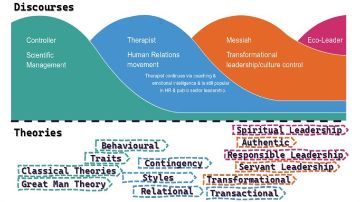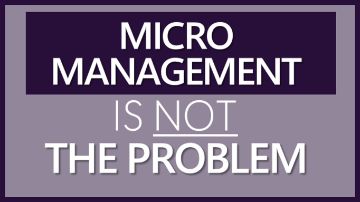
Our corporate world seems to have gone mad as a hatter! Newspaper around the globe are chock-full of distressing stories — featuring corporate managers as greedy tycoons, opportunistic gamblers, eccentric narcissists or hubristic superstars, busily designing billionaire-only resorts on planet Mars.

"All good things perverted to evil purposes, are worse than those which are naturally bad"
(Barnaby Rudge in Charles Dickens)
Our corporate world seems to have gone mad as a hatter! Newspaper around the globe are chock-full of distressing stories - featuring corporate managers as greedy tycoons, opportunistic gamblers, eccentric narcissists or hubristic superstars, busily designing billionaire-only resorts on planet Mars. And every day some CEO somewhere makes the headlines for getting away with phenomenal bonuses in spite of miserable performance.
Excuses are varied, but the story often comes down to this: Business has its own rules and - regrettably - "sometimes you win, sometimes you lose". Free markets are like a game, with no morality. You don't like the heat? Stay out of the kitchen!
Sadly, society is mostly at the wrong side of the gamble - when businesses or their leaders fail, we all often settle the bill. Nonetheless, many economists and business schools have been vigorously upholding the paradigm of amoral organisations: as Milton Friedman proclaimed, "the business of business is business." However, not everybody in academia joined the uncritical choir: Margit Osterloh is one of those few outspoken critics who have been rattling the ideological cage for years. Writing about top managers as "fat cats", who too often exploit insider information to self-determine their "fat" pay, and decrying overconfidence and hubris in board rooms, where a sense of entitlement has frequently substituted a sense of responsibility, she passionately argues for a reconfiguration of corporate governance. It is time to wake up, says Margit, there are crooks in corporations, because we have designed corporations for crooks. We must start to "breed virtues, not super stars"!
Of course, it is easy to criticize the excesses of our current system, but harder to provide sensible corrections. So, what to do? Margit, a firm believer in the importance of institutions, argues that we must fundamentally revise corporate governance. Good corporate governance enables deliberation and diversity, whilst bad corporate governance breeds vices - unbalanced self-interest, greed and hubris. Hence, we must eliminate those toxic practices that nurture the crooks. At the same time, we should put in place good practices: ensuring better representation and enabling dialogue of "all the good people" who co-create the organisation's sustainable value. And, finally, we can boost our good fortunes by promoting more women into leadership positions or, even better, deploying random selection!
Stopping corporate vices: Paying CEOs like Bureaucrats!
We have known for many decades that money spoils most good things in life, once it becomes a motivating force. And, indeed, Margit proves in her research that the same is true in business. In most cases pay for performance "crowds out" intrinsic motivation and reduces business value! The excessive emphasis on variable performance-based pay - in the form of hefty top management bonuses or high-flying stock options plans - undermines good intentions and a predisposition to act ethically. Margit shows conclusively that a focus on money, when it rules, destroys helpfulness and generosity (both are not necessarily conducive to higher bonuses), reduces out-of-the-box-thinking (as the focus is narrowly on how to maximize pay) and teaches managers early in their career to "game the system" and "distort" performance standards (here creativity literally pays!). How to intervene? Simple. In a nutshell, Margit suggests, we should stop excessive CEO salaries and bonuses and "Pay Managers as Bureaucrats" instead!
Institutionalising Diversity and Dialogue in the Boardroom - For the Good
In terms of today's prevalent governance structures, Margit's message is equally clear: our obsession with shareholder capitalism is unhealthy. A view of the organization that promotes solely financial investors as sources of the creation of value is untenable. The historical reason why shareholders' interests are prioritized is of course that their investment in companies was perceived to be especially risky. It was argued that shareholders carry so-called "residual risks", i.e., exposures that cannot be hedged, and therefore deserve higher rewards and privileged voting rights. In our knowledge economy, Margit argues, that view is anachronistic. In today's environment most workers and even suppliers invest valuable knowledge and effort into the corporate commons - thereby incurring the same type of idiosyncratic risks as capital investors. Therefore, all stakeholders in organizations must be adequately represented in its leadership. Here, Margit points again to the importance of institutional practices: corporate Boards must become more diverse and effectively represent all different voices. She suggests the German model of co-determination is one of the best examples to follow and recommends a "neutral" chair of the Board to ensure effective facilitation. And, of course, we need far more women in leadership roles!
If in doubt, throw the dice!
Yet, Margit's suggestions do not stop there. One of her most controversial recommendations is to further improve the effectiveness of corporate governance by… lottery. She argues with great enthusiasm that selection by lotteries, or more precisely "random selection", has several important advantages. It prevents cronyism. It facilitates higher levels of diversity and representation. And it deflates feelings of overconfidence and hubris as being drawn by lot is a much more sobering experience than being "the chosen one". In fact, her research with Katja Rost shows that competitive selection quickly leads to hubris: the more leaders "win the competition, the more attention, the more shining, the more limelight they get" and the greater their propensity becomes to take unduly high risks on behalf of their organization.
Selection by lottery is not new - known as "sortition" or "demarchy" it was already a standard good practice in the Athenian democracy in ancient Greece. At the time, a great number of important government roles (which were considered not to be too technical) were allocated by the roll of the dice to a voluntary pool of citizens. One interesting byproduct of the process was that citizens became a lot more interested in democratic dialogue and willing to invest personal efforts in appropriate preparation.
Of course, random selection of board members or other managerial roles can have downsides - it specifically runs the risk of missing out on necessary expertise. Here Margit suggests a tiered procedure: through the combination of the creation of a pool of qualified candidates, who score high on relevant expertise AND good character, with the usage of lottery for selection both diversity and qualification can be optimized.
So, can we stop the corporate crooks? Yes, says Margit - with an effective and intentionally designed institutional framework and the careful selection of leaders. But let's make no mistake about it. Controlling crooks in corporations is as much about crook control, as it is about controlling our own way of thinking. Only once we stop to appraise ourselves and our peers by the size of our salaries, dreaming to become the next generation of corporate heroes, and when instead we all start to invest in the corporate commons, will things truly change!
References
For more information about lotteries for good governance: https://www.youtube.com/watch?v=0fivQUlC7-8
For the full Leaders for Humanity interview with Margit Osterloh visit KnowledgeHub / Leaders for Humanity or watch: https://www.youtube.com/watch?v=egC9-h-4M1I
Spotify: https://open.spotify.com/show/3B5NN89pIDPgGDEPqNv0W7
Apple: https://podcasts.apple.com/gb/podcast/leaders-for-humanity/id1605487911
Anchor: https://anchor.fm/good-organisations
#UnitedForGood #GoodOrganisations #Leadership #Management #EthicsAndExcellence #Transformation #PersaonalDevelopment #Work #LeadersForHumanity
"All good things perverted to evil purposes, are worse than those which are naturally bad"
(Barnaby Rudge in Charles Dickens)
Our corporate world seems to have gone mad as a hatter! Newspaper around the globe are chock-full of distressing stories - featuring corporate managers as greedy tycoons, opportunistic gamblers, eccentric narcissists or hubristic superstars, busily designing billionaire-only resorts on planet Mars. And every day some CEO somewhere makes the headlines for getting away with phenomenal bonuses in spite of miserable performance.
Excuses are varied, but the story often comes down to this: Business has its own rules and - regrettably - "sometimes you win, sometimes you lose". Free markets are like a game, with no morality. You don't like the heat? Stay out of the kitchen!
Sadly, society is mostly at the wrong side of the gamble - when businesses or their leaders fail, we all often settle the bill. Nonetheless, many economists and business schools have been vigorously upholding the paradigm of amoral organisations: as Milton Friedman proclaimed, "the business of business is business." However, not everybody in academia joined the uncritical choir: Margit Osterloh is one of those few outspoken critics who have been rattling the ideological cage for years. Writing about top managers as "fat cats", who too often exploit insider information to self-determine their "fat" pay, and decrying overconfidence and hubris in board rooms, where a sense of entitlement has frequently substituted a sense of responsibility, she passionately argues for a reconfiguration of corporate governance. It is time to wake up, says Margit, there are crooks in corporations, because we have designed corporations for crooks. We must start to "breed virtues, not super stars"!
Of course, it is easy to criticize the excesses of our current system, but harder to provide sensible corrections. So, what to do? Margit, a firm believer in the importance of institutions, argues that we must fundamentally revise corporate governance. Good corporate governance enables deliberation and diversity, whilst bad corporate governance breeds vices - unbalanced self-interest, greed and hubris. Hence, we must eliminate those toxic practices that nurture the crooks. At the same time, we should put in place good practices: ensuring better representation and enabling dialogue of "all the good people" who co-create the organisation's sustainable value. And, finally, we can boost our good fortunes by promoting more women into leadership positions or, even better, deploying random selection!
Stopping corporate vices: Paying CEOs like Bureaucrats!
We have known for many decades that money spoils most good things in life, once it becomes a motivating force. And, indeed, Margit proves in her research that the same is true in business. In most cases pay for performance "crowds out" intrinsic motivation and reduces business value! The excessive emphasis on variable performance-based pay - in the form of hefty top management bonuses or high-flying stock options plans - undermines good intentions and a predisposition to act ethically. Margit shows conclusively that a focus on money, when it rules, destroys helpfulness and generosity (both are not necessarily conducive to higher bonuses), reduces out-of-the-box-thinking (as the focus is narrowly on how to maximize pay) and teaches managers early in their career to "game the system" and "distort" performance standards (here creativity literally pays!). How to intervene? Simple. In a nutshell, Margit suggests, we should stop excessive CEO salaries and bonuses and "Pay Managers as Bureaucrats" instead!
Institutionalising Diversity and Dialogue in the Boardroom - For the Good
In terms of today's prevalent governance structures, Margit's message is equally clear: our obsession with shareholder capitalism is unhealthy. A view of the organization that promotes solely financial investors as sources of the creation of value is untenable. The historical reason why shareholders' interests are prioritized is of course that their investment in companies was perceived to be especially risky. It was argued that shareholders carry so-called "residual risks", i.e., exposures that cannot be hedged, and therefore deserve higher rewards and privileged voting rights. In our knowledge economy, Margit argues, that view is anachronistic. In today's environment most workers and even suppliers invest valuable knowledge and effort into the corporate commons - thereby incurring the same type of idiosyncratic risks as capital investors. Therefore, all stakeholders in organizations must be adequately represented in its leadership. Here, Margit points again to the importance of institutional practices: corporate Boards must become more diverse and effectively represent all different voices. She suggests the German model of co-determination is one of the best examples to follow and recommends a "neutral" chair of the Board to ensure effective facilitation. And, of course, we need far more women in leadership roles!
If in doubt, throw the dice!
Yet, Margit's suggestions do not stop there. One of her most controversial recommendations is to further improve the effectiveness of corporate governance by… lottery. She argues with great enthusiasm that selection by lotteries, or more precisely "random selection", has several important advantages. It prevents cronyism. It facilitates higher levels of diversity and representation. And it deflates feelings of overconfidence and hubris as being drawn by lot is a much more sobering experience than being "the chosen one". In fact, her research with Katja Rost shows that competitive selection quickly leads to hubris: the more leaders "win the competition, the more attention, the more shining, the more limelight they get" and the greater their propensity becomes to take unduly high risks on behalf of their organization.
Selection by lottery is not new - known as "sortition" or "demarchy" it was already a standard good practice in the Athenian democracy in ancient Greece. At the time, a great number of important government roles (which were considered not to be too technical) were allocated by the roll of the dice to a voluntary pool of citizens. One interesting byproduct of the process was that citizens became a lot more interested in democratic dialogue and willing to invest personal efforts in appropriate preparation.
Of course, random selection of board members or other managerial roles can have downsides - it specifically runs the risk of missing out on necessary expertise. Here Margit suggests a tiered procedure: through the combination of the creation of a pool of qualified candidates, who score high on relevant expertise AND good character, with the usage of lottery for selection both diversity and qualification can be optimized.
So, can we stop the corporate crooks? Yes, says Margit - with an effective and intentionally designed institutional framework and the careful selection of leaders. But let's make no mistake about it. Controlling crooks in corporations is as much about crook control, as it is about controlling our own way of thinking. Only once we stop to appraise ourselves and our peers by the size of our salaries, dreaming to become the next generation of corporate heroes, and when instead we all start to invest in the corporate commons, will things truly change!
References
For more information about lotteries for good governance: https://www.youtube.com/watch?v=0fivQUlC7-8
For the full Leaders for Humanity interview with Margit Osterloh visit KnowledgeHub / Leaders for Humanity or watch: https://www.youtube.com/watch?v=egC9-h-4M1I
Spotify: https://open.spotify.com/show/3B5NN89pIDPgGDEPqNv0W7
Apple: https://podcasts.apple.com/gb/podcast/leaders-for-humanity/id1605487911
Anchor: https://anchor.fm/good-organisations
#UnitedForGood #GoodOrganisations #Leadership #Management #EthicsAndExcellence #Transformation #PersaonalDevelopment #Work #LeadersForHumanity
Popular articles in the KnowledgeHub: Good Leadership





 .
.